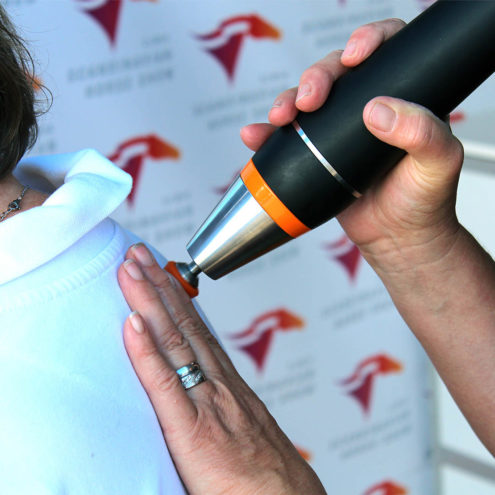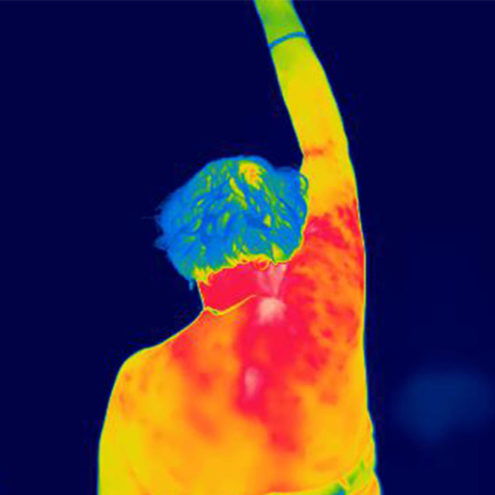Muscle Pain: A Comprehensive Guide

Vascular spasm of the legs, also known as window viewer disease or leg artery disease (BAS) affects many individuals worldwide. This article provides a comprehensive overview of leg angina, including its causes, symptoms, diagnostic methods and treatment options.
What is Muscle Pain?
Muscle pain, or myalgia, is a medical term used to describe pain in muscles. This pain can be acute, occurring suddenly and being short-lived, or chronic, meaning long-lasting and persistent pain. Muscle pain is often felt as a dull, throbbing ache and can affect almost any part of the body.
Why does muscle pain occur?
There are several causes of muscle pain, and it is important to understand these in order to effectively manage and treat the condition.
Overexertion and Muscle soreness
One of the most common causes of muscle soreness is overexertion or physical activity, which often results in exercise soreness. This usually occurs when people perform a new activity or increase the intensity of their exercise.
Infections like Influenza and Lyme disease
Some infections, such as influenza or Lyme disease, can also cause muscle pain. These infections often cause a systemic reaction in the body that includes muscle pain.
Long-Term Stress and Its Effects on Muscles
Prolonged stress can often cause tension in the muscles, which can lead to pain. Stress-related muscle pain is often localized in the neck, jaws, shoulders and back.
Autoimmune Diseases Like Fibromyalgia and SLE
Autoimmune conditions such as fibromyalgia and systemic lupus erythematosus (SLE) can cause widespread muscle pain and fatigue.
Chronic Fatigue and Thyroid Problems
Chronic fatigue syndrome and thyroid problems are other conditions that can cause muscle aches as one of their many symptoms.
Symptoms Associated with Muscle Pain
Muscle pain is often accompanied by other symptoms depending on its cause. These can include fatigue, headaches, sleep disturbances and in some cases fever. Symptoms can vary in intensity and duration depending on the underlying cause.
When should you seek care for muscle pain?
It is important to seek medical attention if the muscle pain is severe, does not improve with home care, or is accompanied by other worrying symptoms such as extreme feelings of weakness, difficulty breathing, or if the pain occurs after an injury. A doctor may perform a physical examination, examine your medical history, and possibly blood tests or other tests.
Treatment Options for Muscle Aches
The treatment of muscle pain depends on the underlying cause. For muscle pain caused by overexertion or exercise pain, rest, ice, compression and elevation may be helpful. In the case of pain due to an infection, prescription drugs may be needed. In the case of chronic conditions such as fibromyalgia, a combination of medications, therapies and lifestyle changes may be recommended.
Lifestyle Changes and Self-Treatment
Self-treatment for muscle pain can include heat, stretching, and gentle exercise. Lifestyle changes, such as reducing stress and improving sleep routines, can also be helpful.
Medical treatment
Medical treatments can include pain relievers, anti-inflammatory drugs, and in some cases, muscle relaxants.
Surgical Options
For some specific conditions, surgical intervention may be necessary, but this is relatively rare when it comes to muscle pain.
How We At The FasciaClinics Can Help You
At FasciaClinics, we understand that muscle pain can have a profound impact on a person’s quality of life. Our treatments focus on the whole person, not just the symptoms. The whole body is scanned to look for imbalances and compensatory patterns. If there is an imbalance, there may be a risk of it spreading further in the body so that muscles, tendons and joints are loaded differently. By balancing the body, the load becomes more even, which reduces the risk of suffering from muscle pain.
Understanding muscle pain is key to effective treatment and management. By identifying the causes and following a tailored treatment plan, individuals can find relief and return to a more active and comfortable lifestyle.
FAQ: Muscle aches
2. Vilka är de Vanligaste Orsakerna till Muskelvärk?
De vanligaste orsakerna inkluderar överansträngning och träningsvärk, infektioner som influensa och borrelia, långvarig stress, autoimmuna sjukdomar som fibromyalgi och SLE, samt kronisk trötthet och sköldkörtelproblem.
3. Kan Muskelvärk vara ett Tecken på Något Allvarligare?
Ja, muskelvärk kan vara ett symtom på allvarliga hälsotillstånd, särskilt om det åtföljs av andra symtom som extrema svaghetskänslor, svårigheter att andas, eller om det uppstår efter en skada. Det är viktigt att söka medicinsk vård i dessa fall.
4. Vilka Symtom Förknippas ofta med Muskelvärk?
Förutom smärtan i musklerna kan muskelvärk åtföljas av trötthet, huvudvärk, sömnstörningar, och ibland feber. Symtomens intensitet och varaktighet kan variera.
5. Vilka Behandlingsalternativ finns för Muskelvärk?
Behandlingsalternativen varierar beroende på orsaken till muskelvärken. De kan inkludera värmebehandling, stretching, mild motion, smärtstillande medel, antiinflammatoriska läkemedel, muskelavslappnande medel, och i vissa fall kirurgiska ingrepp.
6. Hur Kan Fasciaklinikerna Hjälpa till med Muskelvärk?
På Fasciaklinikerna erbjuder vi fasciabehandling där vi släpper på förtätningar i fascian och balanserar upp kroppen. Våra behandlingar syftar till att minska smärtan och förbättra muskelfunktionen, med fokus på helheten och inte bara symtomen.
7. När Bör Man Söka Vård för Muskelvärk?
Du bör söka vård om din muskelvärk är svår, inte förbättras med egenvård, eller om du upplever andra oroande symtom. En läkarundersökning kan vara nödvändig för att fastställa orsaken till smärtan och den mest lämpliga behandlingen.
 Search
Search


































